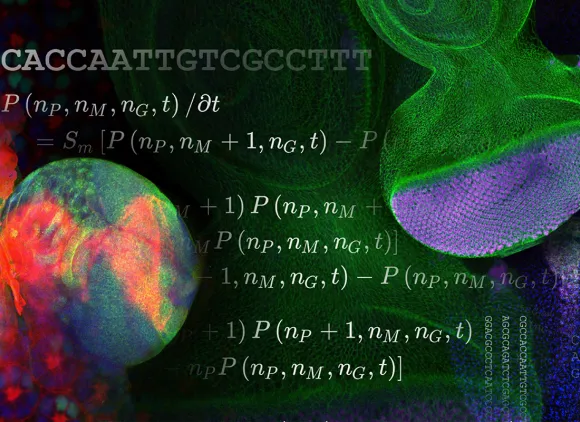The U.S. National Science Foundation Division of Mathematical Sciences (DMS) supports multiple institutes nationwide that advance research and education in the mathematical sciences and statistics.
 On this page
On this page
NSF-Simons National Institute for Theory and Mathematics in Biology (NSF-Simons NITMB)
In partnership with the Simons Foundation, NSF-Simons NITMB aims to build a mathematics-based understanding of biology at all scales of life — from individual cells to interactions between species. Led by Northwestern University in collaboration with the University of Chicago, the institute brings together experts across the mathematical and biological sciences to explore research challenges related to various topics and industries, such as the environment, biomedicine and biotechnology.
NSF Mathematical Sciences Research Institutes
DMS supports six institutes that seek to amplify the impact of the mathematical sciences in other disciplines, catalyze mathematics-based innovations in the mathematical sciences to respond to national needs and expand the talent base engaged in mathematical and statistical research in the U.S.
American Institute of Mathematics (AIM)
Led by the California Institute of Technology, AIM strives to promote mathematical breakthroughs through research collaboration, broaden participation in the field, increase awareness of the societal importance of mathematical sciences and encourage young students to get excited about math. AIM also focuses on preserving historically relevant mathematical books and documents.
Institute for Advanced Study School of Mathematics (IAS)
IAS is an independently led private institute that aims to foster the study of mathematics through curiosity-driven basic research and independent inquiry that crosses disciplinary boundaries, including applications of mathematics that may be valuable to fields of computer science, physics and materials science. The institute also facilitates several programs aimed at encouraging participation from groups historically excluded from the field.
Institute for Computational and Experimental Research in Mathematics (ICERM)
Led by Brown University, ICERM encourages the creation of new computational methods to advance mathematical understanding and foster a deeper understanding of algorithms and computational tools like simulation and computer-assisted proofs. The institute also promotes cross-disciplinary collaboration and facilitates the training and mentoring of graduate students and early-career postdoctoral researchers.
Institute for Mathematical and Statistical Innovation (IMSI)
Led by the University of Chicago, IMSI explores applications of mathematics and statistics that help address complicated and urgent scientific and societal challenges from climate change to health care. IMSI aims to foster a diverse and connected mathematical sciences community to enact real-world change.
Institute for Pure and Applied Mathematics (IPAM)
Led by UCLA, IPAM conducts mathematical research that addresses scientific challenges such as artificial intelligence design and sustainable energy generation. The institute helps unite researchers from different disciplines and mathematical focus areas with the goal of fostering diverse collaborative thought that yields discovery and innovation.
Simons Laufer Mathematical Sciences Institute (SLMath)
Led by UC Berkeley, SLMath fosters and communicates mathematical research in fundamental topics including topology, quantum field theory and geometrics. SLMath supports early-career researchers in the field and cultivates mathematical talent and interest among all ages and groups including those historically underrepresented in mathematics.

